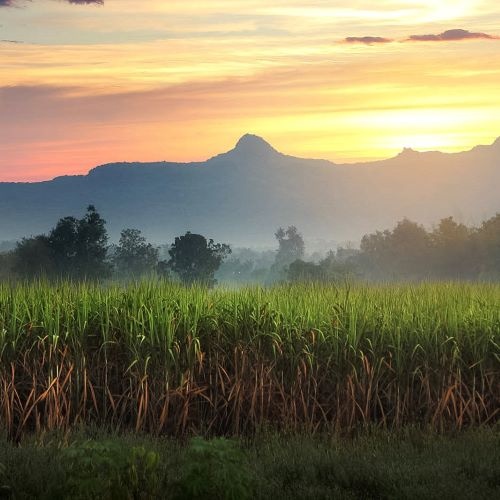Using policy to drive the sustainability agenda in the sugarcane sector
Governments have the power to really drive the sustainability agenda and transform supply chains, including sugarcane supply chains. Through the stroke of a pen, they can introduce pro-sustainability laws and regulations and can support change by investing in innovation and by developing strategic alliances with other governments and industry leaders. At Bonsucro, the global sustainability platform for sugarcane, we not only track these developments and analyse how they impact the sustainable sugarcane sector. In addition, we work with government bodies and support them to understand how they can use the Bonsucro system to achieve their policy goals.
The recent announcement that India and Brazil have formed a biofuel and bioenergy alliance has been big news in the sugarcane sector. India and Brazil are two of our priority origins, so this collaboration is something we’re really excited about. We want to promote cross-border alliances like this and highlight why sustainability must be a core focus of these kinds of relationships.
Over the past year, we’ve seen several exciting examples of international policies implemented that place an important emphasis on sustainability. Many of these are directly impacting our members.
Ethanol mandates
As a clean, affordable and low-carbon biofuel, sugarcane ethanol has emerged as a leading renewable fuel for the transportation sector. Ethanol can help reduce carbon in transport when it is used in its pure form, or when it’s blended with gasoline. Ethanol produces up to 90% less greenhouse gas (GHG) emissions compared to fossil fuels, performing better than any other liquid biofuel produced today on a commercial scale. Sugarcane ethanol has been a mainstream fuel in Brazil since the 1970s and replaced over 3.2 billion barrels of gasoline between 1975 and 2020. For this reason, the India-Brazil relationship is particularly promising.
We were encouraged to see India announce a bill in August to promote the use of ethanol and biomass for energy and feedstock. Other countries such as New Zealand and Colombia have also created ethanol mandates for transport. The percentage of the blend in national mandates can fluctuate, depending on feedstock prices.
While diverting from fossil fuels is essential to meet climate goals, there are considerations to make on the sustainability of biofuel feedstocks: are lots of agrochemicals applied to plants? Is excessive water used? Are workers paid fairly? Do they have access to the right personal protective equipment? For sugarcane production, working towards certification against the Bonsucro Production Standard can address all these challenges. For example. over 180,000 employees on Bonsucro certified farms and mills have access to safe drinking water, are paid at least the national minimum wage, and have proper contracts.
Ethanol imported into Europe must be produced in compliance with the EU Renewable Energy Directive. To enable our members to do this, we developed the Bonsucro EU-RED Standard as a voluntary add-on for sugarcane producers that export ethanol to Europe. The European Commission recognised Bonsucro’s compliance with the EU RED, and more recently with the EU RED II. We will continue to track policy developments to ensure that policymakers understand Bonsucro certification is robust and reliable and will continue to include it in their trusted assurance systems.
Norwegian transparency act
In July 2022, the Norwegian transparency act came into force. This requires all large companies selling products and services in Norway to carry out human rights due diligence in line with the OECD Guidelines.
The law means that companies must carry out human rights due diligence and follow ups across their entire supply chains and business relationships. The results need to be made available to consumers.
In Nordic countries, alcohol is sold through government-run monopolies. Prompted by the Norwegian transparency act approaching, Vinmonopolet – the Norwegian monopoly – convened the other Nordic monopolies to sign a joint statement on sourcing rum sustainably. The monopolies then went a step further and required that some rum tenders included sustainability credentials, such as being certified by Bonsucro.
It’s been a pleasure working so closely with the Nordic alcohol monopolies. They have been very supportive of Bonsucro and raising awareness of challenges like labour conditions in sugarcane supply chains. They also collectively sponsored a series of online training sessions about Bonsucro’s water, rest, shade, and sanitation protocol for sugarcane farm workers. These have been accessed by our members and non-members in 31 countries.
The Norwegian transparency act has taken inspiration from the EU mandatory human rights and due diligence directive. Although the final text of the EU law hasn’t been agreed upon, we will see this law enacted in the coming years.
Certification costs in Mauritius
Another policy we were excited about was in Mauritius. In 2021, the government announced that it would offer a “50% refund on the costs related to certification, testing and accreditation with a view to achieving standards such as Bonsucro.” The announcement was made by Dr. the Hon. Renganaden Padayachy, Minister of Finance, Economic Planning and Development when he presented the national budget in July 2021.
Alteo, one of our members in Mauritius, was able to achieve certification against the Bonsucro Production Standard while this policy was in place.
Aside from mentioning Bonsucro certification directly, we were impressed to see that the budget also covered sustainable energy production, both to grow the economy and move away from fossil-based fuel imports. The flagship measure was a National Biomass Framework which gave a guaranteed price of 3,300 Mauritian rupees (around $74USD) per tonne of sugar produced as value for bagasse. This was a significant increase from 100 Mauritian rupees which had been the case since the 1980s. We’re pleased that bagasse has been remunerated at its real calorific value – something that sugarcane producers had been requesting for decades. If more landowners engage in producing renewable energy from biomass and certification is encouraged, it’s a double win for sustainable sugarcane.
These are just a few examples of government decisions and policies that have already affected change among our members and wider stakeholders. There are a lot of upcoming legislative changes in the European Union that will impact sugarcane supply chains. We will support our members to stay on top of any changes.
One of our core principles at Bonsucro is collaboration. We believe that to make meaningful change, we need to work together across the supply chain but also with governments. We will continue to communicate about our work with credibility and integrity to strengthen our engagement with policymakers and influencers. We will also promote our members’ dedication and commitment to making sugarcane supply chains more sustainable and enabling innovative uses of sugarcane to be a solution to a lower carbon world.
We will discuss policies in practice at Bonsucro Global Week – the leading global event for sustainable sugarcane – which takes place 17-20 October in Brazil.












